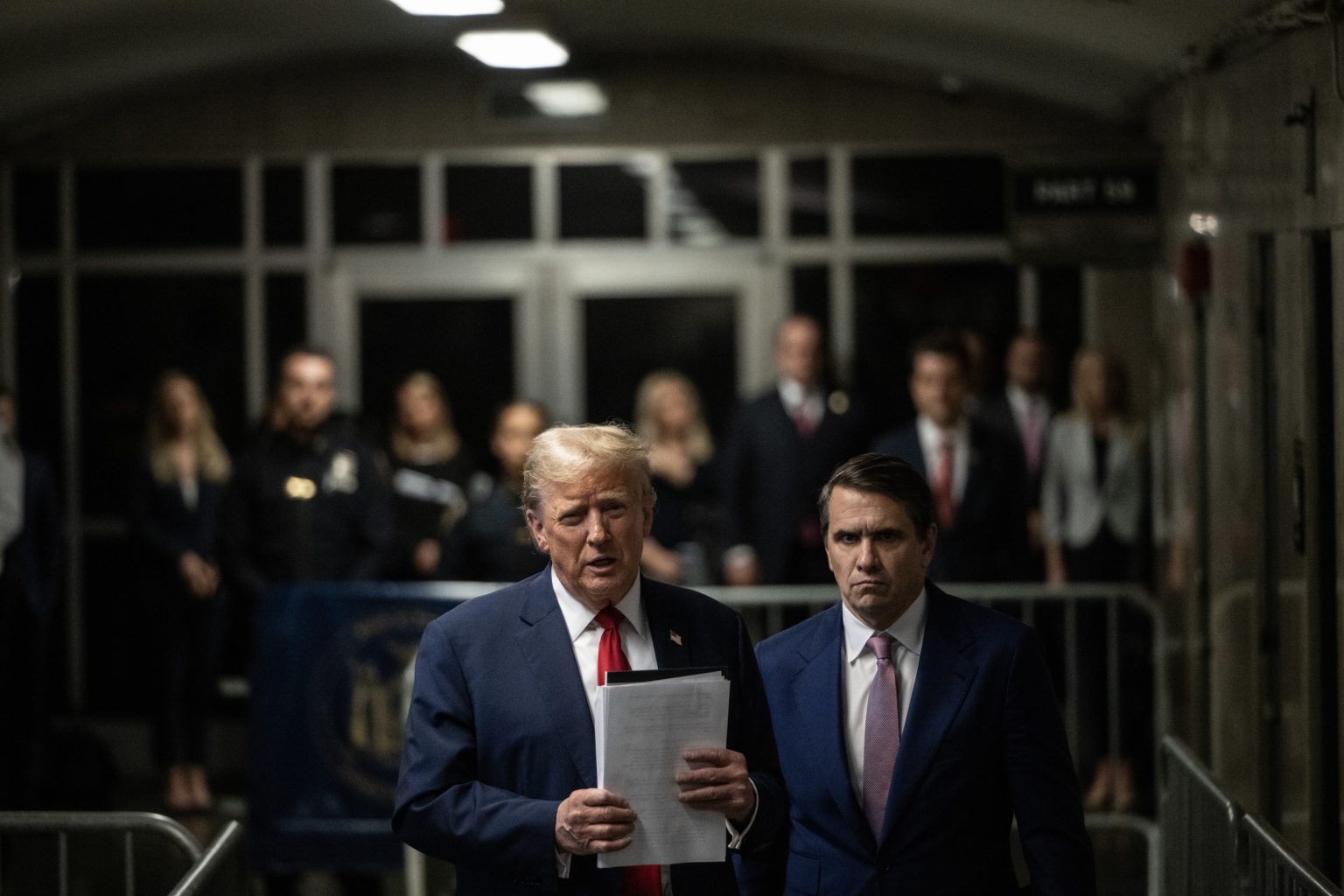Former Donald Trump attorney and “fixer” Michael Cohen faced a tough cross-examination in court, where his credibility was called into question. Cohen, who is the prosecution’s star witness, alleged that Trump forged financial documents to hide a hush money payment made to adult-film actress Stormy Daniels during the 2016 presidential campaign. Trump denies the allegations and pleads not guilty to the 34 felony charges in the case. During the cross-examination, Cohen was questioned about a phone call he had with Trump through Trump’s bodyguard, Keith Schiller, regarding Daniels, leading to doubts about the accuracy of his testimony.
The defense’s cross-examination of Cohen was described as devastating, with legal analyst Elie Honig stating that Cohen’s credibility was severely undermined by the focus on the phone call with Trump. The defense sought to show inconsistencies in Cohen’s testimony and raise doubts about the accuracy of his recollections. While this moment was significant in the trial, it may not be enough to sway the outcome, according to former U.S. Attorney Barbara McQuade. She emphasized that the prosecution had built a strong case with other evidence and witnesses, leaving Cohen’s testimony as a piece of the puzzle rather than the central focus. McQuade believes that the jury will need to consider all the evidence presented to determine the case’s outcome beyond a reasonable doubt.
In response to the cross-examination, former State Attorney Dave Aronberg of Florida stated that prosecutors had successfully built a firewall around Cohen to insulate him from attacks on his credibility. While acknowledging that Cohen is not a perfect witness, Aronberg noted that there was enough corroboration for his core claims to potentially lead to a guilty verdict. The prosecution had prepared for challenges to Cohen’s credibility and had presented sufficient evidence to support his testimony. It remains to be seen how the jury will interpret the evidence and weigh Cohen’s testimony in the overall case against Trump.
As the trial continues, both the prosecution and the defense will make their closing arguments to the jury. The defense will likely highlight Cohen’s credibility issues and question the reliability of his testimony, while the prosecution will emphasize the overall evidence presented and the context provided by Cohen’s testimony. The jury will ultimately decide whether the evidence presented is sufficient to prove Trump’s guilt beyond a reasonable doubt. With Cohen set to return to the stand on Monday, the trial’s outcome will depend on how the jury evaluates the testimony and evidence presented throughout the proceedings. The case against Trump hinges on the credibility of witnesses like Cohen and the strength of the corroborating evidence.


